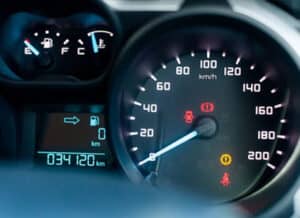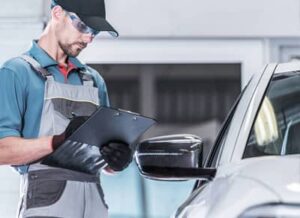When it comes to purchasing a used car, the term “rebuilt title” can be both puzzling and intriguing. In this comprehensive guide, we’ll break down the concept of a rebuilt title and explore its implications. Whether you’re wondering, “What’s a rebuilt title?” or pondering, “Is a rebuilt title bad?”. We’ve got you covered.
What Does Rebuilt Title Mean?
Let’s start with the basics. What exactly does a “rebuilt title” mean? A rebuilt title is a designation given to a vehicle that was previously salvaged due to severe damage, often from accidents, floods, or theft recoveries. When a car receives a salvage title, it’s typically considered a total loss by an insurance company, meaning the cost to repair the damage exceeds the vehicle’s value. However, the story doesn’t end there.
DID YOU KNOW?
Did you know that a car can transition from a clean title to a rebuilt title and back to a clean title again? This process involves extensive repairs, inspections, and a reevaluation by state authorities. It’s a testament to the potential for recovery and redemption even after severe damage.
Does a Rebuilt Title Affect Insurance?
One of the burning questions many prospective buyers have is whether a rebuilt title affects insurance. The answer is a resounding yes. Insurance for cars with rebuilt titles can be more challenging to obtain and often comes at a higher cost. Insurers perceive these vehicles as riskier due to their history of significant damage, resulting in higher fees.
Insuring a car with a rebuilt title might require specialized insurance providers who are willing to underwrite such vehicles. Additionally, the coverage options may differ from those available for cars with clean titles.
Is a Rebuilt Title Bad?
The perception of rebuilt title cars can vary among buyers. Some view them as affordable options for obtaining a vehicle that has undergone extensive repairs and inspections. Others might hesitate due to concerns about hidden damage, potential safety issues, and resale value.
In reality, whether a rebuilt title is “bad” depends on various factors, including the extent of the damage, the quality of repairs, and your comfort level with the vehicle’s history. Thorough research and a professional inspection are essential when considering a car with a rebuilt title.
Rebuilt Salvage Title: is it the same?
The terms “rebuilt title” and “rebuilt salvage title” are often used interchangeably. Both indicate that a vehicle was previously deemed a salvage title but has since been repaired and deemed roadworthy. Understanding these terms helps clarify the vehicle’s history and status.

Car with a Rebuilt Title: what to keep in mind
If you’re considering purchasing a car with a rebuilt title, it’s crucial to approach the transaction with caution. Be prepared to:
Research: Gather as much information as possible about the vehicle’s history, including the nature of the damage, repair process, and maintenance records.
Inspect Thoroughly: Have the car inspected by a qualified mechanic to ensure it meets safety and performance standards.
Consider the Cost: Factor in potential higher insurance premiums and the possibility of reduced resale value when determining if a car with a rebuilt title is a good financial decision.
DID YOU KNOW?
Did you know that financing a car with a rebuilt title can be challenging? Many traditional lenders are hesitant to finance such vehicles due to perceived risks. However, some specialized lenders cater to buyers of rebuilt title cars, albeit at higher interest rates.
In conclusion, understanding what a rebuilt title means and its potential implications is essential for making an informed decision when shopping for a used car. While a rebuilt title doesn’t necessarily mean a vehicle is “bad,” it does require careful consideration and due diligence to ensure you’re getting a safe and reliable vehicle.
The Role of Instant VIN Reports in Escaping the Rebuilt Car Pitfall
In the world of used car buying, the term “rebuilt car” can often send shivers down a buyer’s spine. While some rebuilt title vehicles can be hidden gems, others may hide a myriad of problems that could lead to headaches and financial setbacks. Fortunately, there’s a powerful tool that can help you navigate this tricky terrain: Instant VIN Reports. In this article, we’ll explore how vehicle history reports can be your ticket to escaping the rebuilt car pitfall.
The Rebuilt Car Conundrum
Before delving into the role of Instant VIN Reports, let’s understand the rebuilt car conundrum. A rebuilt car, as mentioned earlier, is one that was previously deemed a total loss due to severe damage, such as accidents, floods, or theft recoveries. These vehicles are then repaired, inspected, and given a rebuilt title, allowing them to return to the road.
While many rebuilt cars are professionally restored to a high standard, others may have hidden issues, subpar repairs, or safety concerns. It’s this uncertainty that makes buying a rebuilt car a gamble, but one that could pay off with careful research and due diligence.
The Power of Instant VIN Reports
This is where Instant VIN Reports come into play. Vehicle history reports provide a wealth of information about a vehicle’s history based on its Vehicle Identification Number (VIN). By running a VIN Check, you can uncover the past of the vehicle, being able to get access to title checks (including rebuilt titles), auction records and images, maintenance history, odometer readings, accidents and more. Here’s how these reports can help you escape the rebuilt car pitfall:
- 1. Unveiling the History
Instant VIN Reports dig deep into a car’s past, offering insights into accidents, title changes, ownership history, and more. This means you can uncover the true story behind a rebuilt car, shedding light on its previous life and the extent of the damage it endured.
- Identifying Hidden Problems
One of the key roles of Instant VIN Reports is to identify hidden problems. You can discover whether the car has ever been salvaged, flooded, or had its odometer rolled back. These crucial details can alert you to potential pitfalls and safety concerns.
- Assessing the Repair Quality
Quality repairs are crucial for a rebuilt car’s reliability and safety. Instant VIN Reports may include information about the repair process, allowing you to gauge the quality of the work performed. This can be a strong indicator of whether the car is worth your investment.
- Negotiating Power
Armed with the information from an Instant VIN Report, you have the upper hand when negotiating with sellers. If the report uncovers issues not disclosed by the seller, you can use this information to negotiate a fair price or reconsider the purchase altogether.
- Peace of Mind
Perhaps the most valuable aspect of Instant VIN Reports is the peace of mind they offer. By knowing the complete history of a rebuilt car, you can make an informed decision. This knowledge can help you avoid costly surprises and ensure the car meets your safety and reliability standards.
Navigating the rebuilt car market can be daunting, but it doesn’t have to be a gamble. Instant VIN Reports empower you with the information needed to escape the rebuilt car pitfall. By unveiling a vehicle’s history, identifying hidden problems, and assessing repair quality, these reports serve as your trusted guide in making a well-informed purchase decision. When it comes to buying a rebuilt car, knowledge is your best ally, and Instant VIN Reports provide the key to unlocking that knowledge.










